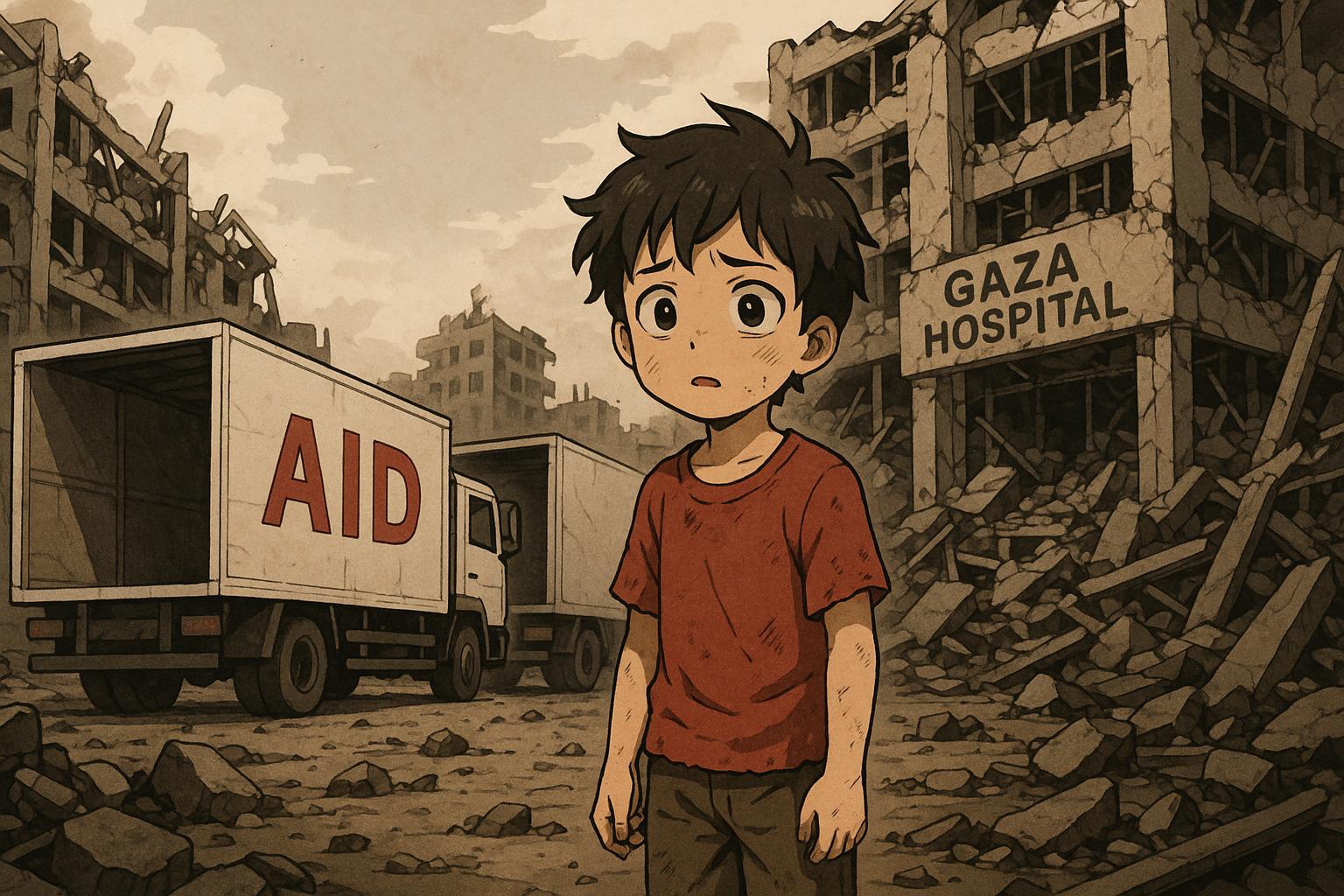International concern is mounting over the humanitarian crisis in Gaza, where the United Nations announced that no aid has been distributed despite initial trucks crossing the border following an 11-week blockade. UN spokesperson Stephane Dujarric reported that a team of officials waited for hours for access but ultimately could not bring supplies into the region. Although Israel recently agreed to allow some humanitarian assistance into Gaza, international observers have characterised the volume as woefully inadequate.
According to reports, only about 100 humanitarian aid trucks have been permitted into the territory, a stark contrast to the pre-war average of 500 trucks per day. As the crisis deepens, experts warn that time is running out for the most vulnerable populations. UN humanitarian chief Tom Fletcher highlighted the dire situation, expressing that an estimated 14,000 babies could face death within 48 hours unless urgent medical supplies are delivered. This alarming statistic, however, has met with scrutiny regarding its presentation and verification, underlining the complex nature of humanitarian claims in live conflict scenarios.
The situation has prompted significant international backlash. The UK government announced plans to suspend trade talks with Israel, labelling its military actions "morally unjustifiable." Prime Minister Keir Starmer described the circumstances as "intolerable," while the EU's foreign policy chief, Kaja Kallas, indicated that a review of trade agreements with Israel was underway. The mounting pressure reflects a growing consensus among Western nations, including France and Canada, that urgent humanitarian needs must be met.
Further complicating aid efforts, logistical challenges remain in transporting supplies into Gaza. The UN reports that Israeli protocol requires aid to be offloaded on the Palestinian side of the Kerem Shalom crossing before being reloaded, a process that many argue hampers timely delivery. Dujarric described the arrival of supplies as a "drop in the ocean" given the region's extensive needs, with UN bodies estimating that around 600 trucks per day are needed to address the chronic humanitarian crisis.
Reports from Gaza indicate that the health infrastructure is in a state of collapse, with hospitals and clinics under bombardment and a dire shortage of medical supplies. In total, over 53,000 people have reportedly died since the onset of Israel’s military campaign in October 2023 in response to the Hamas attacks that killed approximately 1,200 Israelis and resulted in many hostages. Humanitarian groups are alarmed by this escalating violence, which has displaced over half a million people and threatened the lives of countless children.
Despite the increasing international demands for ceasefire and enhanced aid access, Israeli Prime Minister Benjamin Netanyahu has defended military operations, advocating for continued action until what he describes as "total victory" is achieved. He contrasts this stance with the sentiments of Western leaders who argue that Israel's military offensive risks breaching international humanitarian law.
Moreover, US Secretary of State Marco Rubio acknowledged Israel's recent decision to allow limited aid into the region but indicated a need for a larger volume of supplies. His remarks reflected a broader concern that, while some progress has been made, immediate and substantial action is required to avert escalating humanitarian consequences.
As international leaders continue to call for an end to military operations and the facilitation of critical aid, there is growing apprehension about the potential for protracted suffering in Gaza. The humanitarian community remains vigilant, urging for the prompt delivery of vital supplies to mitigate the impending disaster facing the region's youngest and most vulnerable inhabitants.
Source: Noah Wire Services
